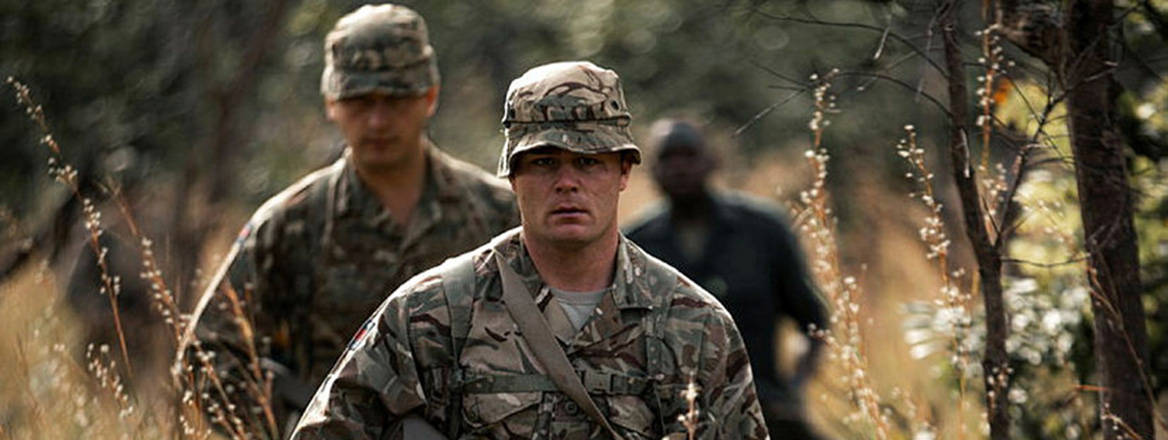A New Concept: Military Assistance to Protect the Environment
With increasing recognition of the security threats linked to environmental degradation, a new framework is needed for engaging the UK military in environmental protection.
The UK’s Integrated Review Refresh (IRR), published in March 2023, states that:
‘Of the challenges identified in IR2021, climate change and biodiversity loss are important multipliers of other global threats, and are guaranteed to continue to worsen over the next decade: six of the top ten risks for the decade ahead identified by the World Economic Forum relate to climate, the environment and nature.’
Yet there is no formalised framework under which Defence should engage in protecting the environment. Building on the established concept of Military Aid to Civil Authorities (MACA), I argue that a similar framework is needed to best engage the military in environmental protection, which I term Military Assistance to Protect the Environment (MAPE).
The intent of MAPE is to continue to raise the relevance of the environment to Defence, to make use of the skills and resources militaries can offer to protect the environment, and to seek to avoid negative military environmental interventions by setting out principles for best practice.
The Military and the Environment
There are already several examples of long-standing military support to environmental protection around the world, including the Indian Army’s Ecological Battalions restoring forestry to prevent natural disasters and the Botswana Defence Forces’ support to the Department for National Wildlife and Parks to conserve biodiversity.
Efforts have grown in more recent years, including among UN peacekeeping forces with the establishment of a sustainability directorate and the publication of a report entitled ‘Greening the Blue Helmets’. The British Army has been countering the illegal wildlife trade in Africa through Operation CORDED since 2017; the US Department of Defense launched Operation Jade Spear in 2020 to combat illegal, unregulated and unreported fishing; and the Colombian military has been engaged in Operation Artemis since 2019 to provide support for protecting the Amazon.
The MAPE Concept
MAPE builds on the well-established MACA concept, although with MACA military support is usually a last resort to respond to natural disasters or other domestic emergencies when civil authorities lack the resources or capability to do so.
MAPE would not be intended as a last resort, but rather as a useful and ongoing partnership to utilise military strengths and capabilities to enhance environmental protection. It would be designed as a proactive mechanism to protect and restore biodiversity over the short, medium and long term.
Protecting the environment is unlikely to ever be a core concern for Defence. However, small teams could have a significant impact on protecting and restoring biodiversity, offering a low-cost and minimal-manpower operation to address the security risks identified in the IRR, as I set out in a RUSI Journal article last year.
Although many in Defence remain sceptical about the relevance of environmental protection, such thinking is increasingly out of date
There are six key areas where the military could provide support, focused on non-kinetic interventions to minimise the risk of further environmental harm and to address the root causes of biodiversity loss.
- Developing strategy and applying existing doctrine in the environmental space to help operations deliver maximum effect.
- Civil-military cooperation (CIMIC) to enhance existing environmental operations with military capabilities and deliver economic interventions to address the root causes of environmental exploitation.
- Reducing the environmental footprint of military operations and supporting efforts to protect and restore biodiversity during and after armed conflict.
- Using intelligence to better understand and proactively address threats to the environment, both from serious organised crime and from poverty, through human terrain analysis of vulnerable populations.
- Building the capacity of partner countries’ environmental law enforcement by providing military skills training, such as through Operation CORDED.
- Utilising equipment and capacity to enhance protection, much like existing disaster relief efforts.
The Benefits of MAPE for Defence
The main benefit is security: protecting biodiversity is key to global prosperity, and the loss of biodiversity increases the threat of climate change, conflict and natural disasters. Although many in Defence remain sceptical about the relevance of environmental protection, such thinking is increasingly out of date.
MAPE would also offer the opportunity to test new equipment, tactics and capabilities in a low-risk environment and to maintain and enhance CIMIC capabilities outside of wartime. Involvement in environmental protection globally would offer an intelligence platform in key contested regions and a means of countering hostile states, such as by enhancing Western influence in Africa to balance against Russian and Chinese efforts. Finally, MAPE would help enhance the UK public’s perception of the military, providing an opportunity to get involved in a cause with widespread popular support in an increasingly eco-conscious world.
Learning from History
When the Romans salted the fields of Carthage, they knew what they were doing: when the environment is degraded, human habitation becomes impossible. With the growing security threats associated with climate change and biodiversity loss, Defence needs to take a more active role in environmental protection. MAPE would offer a framework to deliver support in the most effective and efficient way possible.
The views expressed in this Commentary are the author’s, and do not represent those of RUSI or any other institution.
Have an idea for a Commentary you’d like to write for us? Send a short pitch to commentaries@rusi.org and we’ll get back to you if it fits into our research interests. Full guidelines for contributors can be found here.
WRITTEN BY
Richard Milburn
- Jim McLeanMedia Relations Manager+44 (0)7917 373 069JimMc@rusi.org


